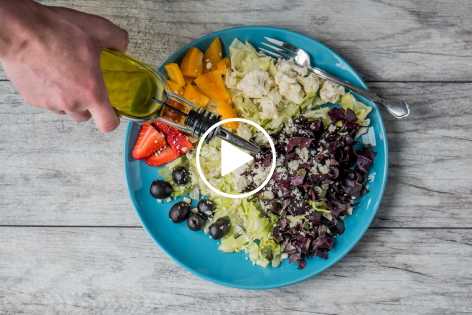
LMU 24 – The Health Benefits of Extra Virgin Olive Oil: Evidence from Recent Studies
Source: Journal Nutrition & Diabetes 2015: Journal of the American Medical Association, 2015
Lifesyle Medicine Update (Sept 14, 2016)
Introduction
In recent years, extra virgin olive oil (EVOO) has gained popularity as the vegetable oil of choice for health-conscious individuals. This is due to its high content of monounsaturated fat, specifically oleic acid, and a range of phenolic compounds with antioxidant and anticancer properties. Emerging research from 2015 has shed further light on the potential health benefits of EVOO, particularly in relation to high blood sugar, high cholesterol, and cancer risk reduction.
EVOO and Blood Sugar Control
A 2015 Italian study, published in the journal Nutrition & Diabetes, investigated the effects of EVOO on blood glucose and LDL-cholesterol levels in healthy individuals after a meal. The study involved 25 men and women who consumed a Mediterranean-style meal rich in fruits, vegetables, grains, and fish, along with an additional 10 grams (approximately 2 teaspoons) of either EVOO or corn oil with separate meals. The researchers found that blood sugar levels increased after both meals, as expected. However, the post-meal rise in blood sugar was significantly lower in participants who consumed the meal with EVOO compared to corn oil. Additionally, the subjects who consumed corn oil experienced significantly higher levels of LDL-cholesterol, the “bad cholesterol” associated with an increased risk of cardiovascular problems. The researchers concluded that EVOO improved post-meal glucose and LDL-cholesterol levels, which may contribute to the anti-atherosclerotic effect of the Mediterranean diet.
EVOO and Cancer Prevention
Studies in 2015 also explored the anticancer properties of EVOO, particularly the phenolic compound oleocanthal found in the oil. Laboratory experiments revealed that oleocanthal effectively destroyed several types of cancer cells. Moreover, a separate study published in the Journal of the American Medical Association indicated that women who supplemented their Mediterranean-style diet with EVOO had a 68% lower risk of developing breast cancer compared to women who followed a Mediterranean diet without the EVOO supplement. While these findings are promising, it is essential to confirm them through further research, as the study included a relatively small number of breast cancer cases.
Choosing the Right Olive Oil
For optimal health benefits, it is essential to use EVOO in your diet. Unlike other olive oils, EVOO contains an abundance of phenolic compounds, which are believed to be the key components responsible for its anti-cholesterol, anti-atherogenic, and anticancer effects. Olive oils that are not extra virgin have been shown to be much less effective in these aspects.
Incorporating EVOO Into Your Diet
To experience the health benefits associated with EVOO, consider incorporating at least 2 teaspoons of it into your daily diet. It can be used as a healthier alternative for salad dressings, sautéing vegetables, browning chicken, or making pasta and other sauces.
Conclusion
Extra virgin olive oil has garnered widespread recognition as a healthy vegetable oil due to its unique composition of oleic acid and phenolic compounds. Recent research from 2015 has further supported its potential benefits in controlling blood sugar and LDL-cholesterol levels, as well as reducing the risk of certain types of cancer. By using EVOO in your daily diet, you can enhance your overall health and well-being.
References:
- F. Violi, L. Loffredo, P. Pignatelli, F. Angelico, S. Bartimoccia, C. Nocella, R. Cangemi, A. Petruccioli, R. Monticolo, D. Pastori, R. Carnevale. “Extra virgin olive oil use is associated with improved post-prandial blood glucose and LDL cholesterol in healthy subjects.” Nutrition & Diabetes (2015) 5, e172; 20 July 2015.
(http://www.ncbi.nlm.nih.gov/pubmed/26192450) - Molecular Cell Oncology (2015): Oleocanthol phenolic compound kills cancer cells.
(http://www.ncbi.nlm.nih.gov/pubmed/26380379) - JAMA (2015): Extra virgin olive oil shown to reduce breast cancer risk in older, overweight women. (http://archinte.jamanetwork.com/article.aspx?articleid=2434738&resultClick=1)
- The FASEB Journal (2010): Extra virgin olive oil outperforms regular olive oil in studies looking at atherosclerosis and inflammation in human and laboratory studies.
(http://www.fasebj.org/content/24/7/2546)

Dr. James Meschino
ABOUT THE AUTHOR
Dr. James Meschino, DC, MS, ROHP, is an educator, author, and researcher having lectured to thousands of healthcare professionals across North America. He holds a Master’s Degree in Science with specialties in human nutrition and biology and is recognized as an expert in the field of nutrition, anti-aging, fitness, and wellness as well as the author of numerous books.


